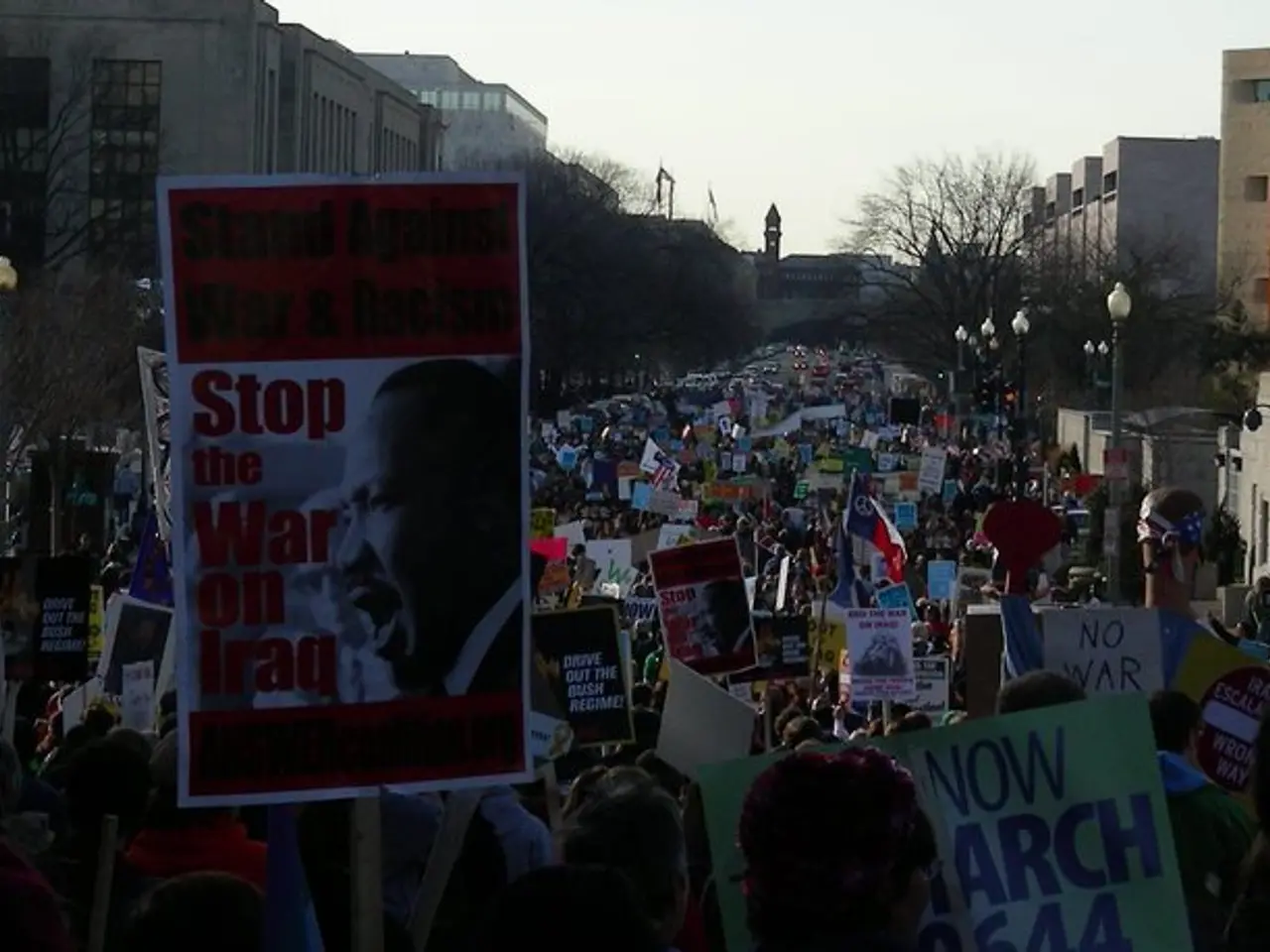Surviving the Storm: Russia's Resilience in the Face of EU Sanctions
Russia resists Compulsion to Engage in Discussions
Going against all odds, the Russian economy, much like a sturdy oak, has weathered the relentless storm of economic sanctions imposed by the EU since the unfortunate invasion of Ukraine in 2022. Battered but not beaten, Russia has displayed an impressive level of adaptability and outright cunning, managing to steer clear of a catastrophic economic collapse while maintaining a considerable military might - though not without its struggles.
The Economy's Surprising Resilience
The initial application of EU sanctions sent bruising shockwaves through the Russian economy, initiating what some might call a "sugar high" phase. This period was characterized by soaring hydrocarbon revenues and ballooned military expenditures, a temporary boost that gave the economy a measure of resilience. This phase has since morphed into something akin to an economic "hangover," revealing the limitations of adaptation. The lingering issues such as inflation, labor shortages, and slowed growth notwithstanding, Russia has demonstrated an underestimated ability to withstand sanctions without plunging headfirst into disaster [1].
Strategies for Survival
1. Global Energy Dominance and Diversified Trade
Russia's energy sector remains a key driver of its economy, despite EU efforts to restrict oil and gas imports and impose price caps. To compensate, Russia has significantly increased its energy exports towards non-Western markets, with considerable economic ties emerging with China. However, this reliance on a single market carries risks due to the potential for economic overdependence [1].
2. Fortifying the Defense Industry and a War Economy
The Russian government has made defense spending a priority, pumping in over 40% of annual budget and more than 6% of GDP towards the sector. This massive investment in defense production and industrial capacity has transformed the economy into a war machine specifically designed to sustain its military efforts. This focus on defense clearly indicates a long-term commitment that ensures Russia can keep up the current attrition rate on the battlefield despite the sanctions [3].
3. Financial and Trade Manipulation
Exclusion from major Russian banks from SWIFT and bans on certain goods and financial transactions have forced Russian firms and the government to devise creative solutions. These strategies involve developing alternative non-SWIFT payment systems, increasing trade with less compliant countries, and reorganizing firm-level operations to continue functioning under EU restrictions [2].
4. Internal Economic Rearrangement
To combat sanctions, Russia has undertaken a profound internal economic restructuring, although this process has exposed vulnerabilities such as a credit crunch and uncertainty about future oil revenues. Despite these hurdles, the economy has shown sufficient strength to support the ongoing war effort under the current sanctions regime [1].
The EU’s Sanctions: Past, Present, and Future
The EU continues to toughen sanctions, the latest example being the revision of oil price caps. However, political struggles within the EU have hampered sanction enforcement and expansion [4]. The persistence or intensification of sanctions will only serve to intensify pressure on the Russian economy, potentially forcing Moscow to make harsh budgetary concessions and potentially weakening its military campaign sustainability [1].
In Conclusion
In essence, Russia's response to EU sanctions can be characterized as one of deft resilience and resourcefulness. By leveraging its hydrocarbon revenues, forming ties with non-Western partners, focusing on defense spending, and outmaneuvering financial restrictions, Russia has managed to keep its war economy afloat and avoid economic ruin. However, significant economic strain persists, particularly due to inflation, labor shortages, and dependence on limited trade partners. The long-term viability of Russia's economy and war effort will depend greatly on the continuing evolution of sanctions policy and the nation's ability to adapt to emerging economic hurdles [1][2][3][4].
Amidst the ongoing EU sanctions and war-and-conflicts, Russia's economy has displayed an impressive level of adaptability, with strategic moves such as global energy dominance and diversified trade, fortifying the defense industry, financial and trade manipulation, and internal economic rearrangement to survive the economic storm [1][2][3]. The EU's sanctions have intensified pressure on the Russian economy, with the future dependant on the continued evolution of sanctions policy and the nation's ability to adapt to emerging economic challenges related to politics and general-news.








